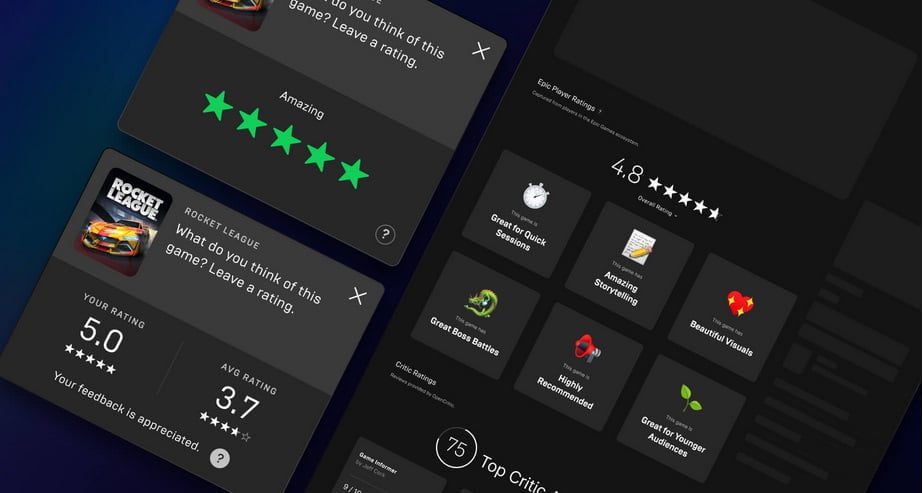
Apple wins Appeals Court Ruling against Epic Games. An appeals court has issued a ruling in the long-running antitrust tussle between Apple and Epic Games. The US Ninth Circuit Court of Appeals upheld a lower court ruling that rejected most of Epic’s claims that Apple violated federal competition law by prohibiting alternative app stores on its devices. However, the panel also upheld a part of the original ruling that was in Epic’s favor. What does this mean for the future of app stores on Apple’s devices, and for the mobile gaming industry as a whole? Let’s take a closer look.
Contents
The Ruling Explained
The US Ninth Circuit Court of Appeals has upheld a lower court ruling that largely rejected Epic’s claims that Apple violated federal competition law by prohibiting alternative app stores on its devices. The three-judge panel also upheld a part of the original ruling that was in Epic’s favor. This means that the status quo will remain, unless further appeals move the case to a higher court. It is worth noting that Epic may now be on the hook for Apple’s legal fees, as Axios’ Stephen Totillo pointed out.
Apple Responds
Apple has issued a statement on the ruling, saying that “today’s decision reaffirms Apple’s resounding victory in this case, with nine of ten claims having been decided in Apple’s favor. For the second time in two years, a federal court has ruled that Apple abides by antitrust laws at the state and federal levels.” The company went on to say that “the App Store continues to promote competition, drive innovation, and expand opportunity, and we’re proud of its profound contributions to both users and developers around the world.” However, Apple did say that it respectfully disagrees with the court’s ruling on the one remaining claim under state law and is considering further review.
Epic’s Response
Epic has yet to issue an official response to the ruling. However, CEO Tim Sweeney tweeted that “fortunately, the court’s positive decision rejecting Apple’s anti-steering provisions frees iOS developers to send consumers to the web to do business with them directly there. We’re working on next steps.” It remains to be seen what those next steps will be.

The Original Ruling
In the original 2021 ruling, US District Judge Yvonne Gonzalez Rogers determined that although Apple prevented users from being able to pay less for apps or in-app purchases, it wasn’t running the App Store like a monopoly. Still, Rogers told Apple to let developers direct users to alternative payment systems, which would have enabled them to bypass the 15 to 30 percent cut Apple typically takes from in-app purchases. Apple won a last-gasp delay on the implementation of those changes. However, in 2022, it started allowing the makers of certain apps to redirect users to their own websites for payments and to fully manage their accounts.
The Future of Third-Party App Stores
Regardless of the ultimate outcome in both cases, Apple and Google may support third-party app stores on iOS and Android anyway. Regulators in other markets have scrutinized both companies’ app store practices. As a result of new European Union laws in particular, Apple is reportedly preparing to allow third-party marketplaces on the iPhone as soon as next year. If and when it does, Epic’s own mobile app store is ready to go, according to CEO Tim Sweeney. Microsoft is preparing its own mobile app store too.
What This Means for Mobile Gaming
The ruling is a win for Apple and a blow for Epic Games, but it’s not the end of the story. The case is likely to be appealed further, and there are broader implications for the mobile gaming industry as a whole. The ruling comes as a significant win for Apple in its ongoing legal battle with Epic Games, which began in 2020 when Epic Games attempted to bypass the App Store’s payment system by offering users a cheaper way to pay for in-game currency. This move led to Fortnite’s removal from the App Store and subsequently the lawsuit against Apple, which accused the tech giant of anticompetitive behavior by prohibiting alternative app stores on its devices.
The latest ruling by the US Ninth Circuit Court of Appeals upholds the previous verdict by US District Judge Yvonne Gonzalez Rogers, who determined that Apple had not violated federal competition laws despite preventing users from paying less for apps or in-app purchases. However, Judge Rogers ordered Apple to let developers direct users to alternative payment systems, which would enable them to bypass the 15 to 30 percent cut that Apple typically takes from in-app purchases.
Apple was successful in obtaining a last-minute delay on the implementation of those changes, but in 2022, it began allowing the makers of certain apps to redirect users to their own websites for payments and to fully manage their accounts.
In its statement to Engadget, Apple claimed that the App Store promotes competition, drives innovation, and expands opportunities for both users and developers worldwide. The company also stated that it respectfully disagrees with the court’s ruling on the one remaining claim under state law and is considering further review.
On the other hand, Epic Games has made similar antitrust claims against Google, and the case is set to go to trial in November. Regardless of the outcome in both cases, Apple and Google may support third-party app stores on their platforms, as regulators in other markets have scrutinized both companies’ app store practices.
In particular, new European Union laws may have led Apple to prepare to allow third-party marketplaces on the iPhone as soon as next year. Epic Games CEO Tim Sweeney has also revealed that the company’s own mobile app store is ready to go if and when Apple decides to support third-party app stores.
In conclusion, the latest ruling in the long-running antitrust case between Apple and Epic Games upholds Apple’s victory in the majority of claims made against the tech giant. However, the court ordered Apple to let developers direct users to alternative payment systems, enabling them to bypass the 15 to 30 percent cut that Apple typically takes from in-app purchases. The case’s outcome may also have significant implications for other app stores and the broader tech industry, as regulators worldwide have scrutinized app store practices.



